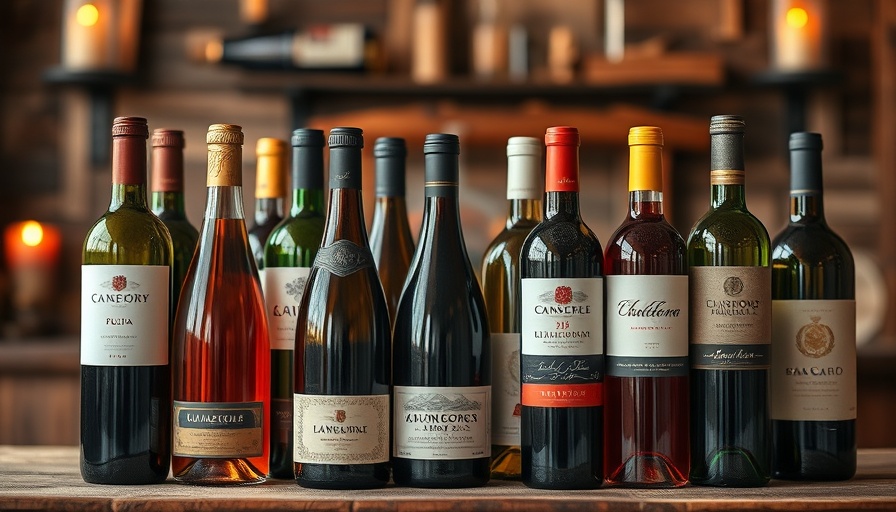
Ensuring Wine Authenticity Through Advanced Technology
In the heart of Europe's rich wine tradition, the elegance of a well-aged bottle carries not just flavor but also time-honored stories. However, the dark shadow of wine fraud looms large over this cherished industry, costing businesses €1.3 billion annually. To combat counterfeiting, a revolutionary combination of chemistry and blockchain technology has emerged, primarily spearheaded by the TRACEWINDU initiative. This ambitious project aims not only at the preservation of tradition but also at safeguarding consumers' trust.
The Dangers of Wine Counterfeiting
With stunning figures indicating that authorities recovered 66 million fake bottles of popular wines in just one year, it’s clear that the threat of counterfeit products is an escalating issue. Dr. Sanja Radonjić from Plantaže vineyard in Montenegro, who has witnessed firsthand the implications of counterfeit wines, states, "We have seen counterfeit versions of our wine in Albania, Kosovo, Russia, and Serbia." This alliance of international producers highlights the growing need for a systematic approach to trace authentic wines.
Creating a Digital Passport for Wine
Professor Manuel Valiente from the Autonomous University of Barcelona leads the TRACEWINDU's multidisciplinary team, which is crafting a 'digital passport' for each wine bottle. This innovative approach utilizes unique chemical signatures—derived from the vineyard’s soil, air composition, and other environmental factors—alongside blockchain technology to ensure airtight traceability. By linking each bottle to its origin, consumers can track the journey of their wine from vineyard to table through a simple QR code scan.
The Science Behind the Label
The marriage between chemistry and blockchain offers a robust verification method. Professor Valiente emphasizes that the methods developed by TRACEWINDU are not only effective but cost-efficient, ensuring that trust returns to consumers. With every production stage securely recorded in blockchain, the opportunity for tampering significantly decreases, giving authenticity a new level of assurance.
Heightening Consumer Confidence
The collective expectation from consumers is shifting toward transparency; they are increasingly demanding to know where their products originate and who manages them. According to Professor Valiente, "There is a need to satisfy this curiosity," indicating that contemporary consumers value authenticity when choosing their wines. By providing verified information at their fingertips, these smart tags will likely not only retain current consumers but also attract a new audience eager for transparency.
Potential for Industry-Wide Adoption
As the TRACEWINDU initiative continues until 2026, the ripple effects of adopting such technologies reach beyond just preventing fraud. It can enhance sustainability efforts in winemaking, as vineyards that implement transparent practices often maintain better cultivation methods. Furthermore, integrating these digital systems can help regions in Europe, like Montenegro, where wine production contributes to local economies.
The Future of Wine Enjoyment
The passion for wine is not just about drinking; it’s about celebrating its legacy. Innovative solutions like those championed by TRACEWINDU promise a future where every bottle brought to the table tells its unique story with integrity. By bolstering their supply chains with cutting-edge technologies, wine producers can assure consumers that each sip encapsulates not only the essence of the vineyard but the promise of authenticity.
In an industry where the stakes of trust are high, it’s refreshing to see such proactive measures aiming at enhancing consumer trust while preserving the rich heritage of winemaking in Europe.
 Add Row
Add Row  Add
Add 




Write A Comment